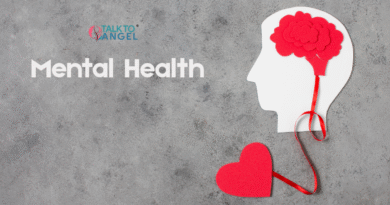Is Chronic Migraine Affecting Your Mental Well-Being?
Chronic migraine is not just a throbbing headache; it’s a complex and debilitating neurological condition that can significantly impact various aspects of a person’s life. One area where it can have a profound effect is on mental well-being. In this article, we will delve into the intricate relationship between chronic migraine and mental health, backed by data and research. We will explore the different ways in which chronic migraine can affect mental health, the rise of various mental health concerns, and how the unpredictability of migraine symptoms can give rise to anxiety. Furthermore, we will examine how this change in mental state can influence different areas of life, including sleep habits, energy levels, interests in activities, and self-perception.
The Interplay Between Migraine and Mental Health
Chronic migraine and mental health are intricately intertwined. The relationship between them is bidirectional, meaning that one can exacerbate the other. Let’s examine how they affect each other.
Migraine’s Impact on Mental Health
1. Data on Migraine and Mental Health
Numerous studies have established a strong connection between migraine and mental health issues. According to the World Health Organization (WHO), migraine is among the top 20 causes of disability worldwide, and this disability extends to mental health. Research conducted by the Migraine Research Foundation indicates that people with migraine are more likely to experience mood disorders, such as depression and anxiety, compared to those without migraine. In fact, individuals with chronic migraine are at an even higher risk of developing these conditions.
2. Different Mental Health Concerns
Migraine doesn’t limit its impact to just one aspect of mental health. It can lead to various mental health concerns, including:
- Depression: Chronic pain, limited functionality, and the constant threat of migraine attacks can contribute to feelings of hopelessness and sadness, leading to clinical depression in some cases.
- Anxiety: The unpredictability of migraine symptoms can be anxiety-inducing. People with chronic migraine may live in constant fear of the next attack, leading to generalized anxiety disorder or panic disorder.
- Irritability: The chronic pain and discomfort associated with migraines can make individuals more irritable and easily agitated, straining personal relationships.
Mental Health’s Impact on Migraine
The influence doesn’t stop at migraine affecting mental health; mental health can also influence migraine. High-stress levels, anxiety, and depression can trigger or exacerbate migraine attacks, creating a cyclical pattern of pain and psychological distress.
The Anxiety of Unpredictable Migraine Symptoms
One of the most challenging aspects of chronic migraine is the unpredictability of symptoms. Migraine attacks can strike at any moment, disrupting plans and causing distress. This unpredictability often leads to heightened anxiety. Individuals with chronic migraine may find themselves in a constant state of vigilance, fearing the onset of the next attack. This heightened anxiety can negatively impact mental well-being, leading to persistent worry and apprehension.
Effects on Various Areas of Life
1. Sleep Habits
Chronic migraine can significantly disrupt sleep patterns. The pain and discomfort associated with migraine attacks can make it difficult to fall asleep and stay asleep. As a result, individuals with chronic migraine may experience insomnia or irregular sleep patterns. Poor sleep quality can further exacerbate both migraine and mental health issues, leading to a vicious cycle of pain and sleeplessness.
2. Energy Levels
Living with chronic migraine can be physically and mentally draining. Frequent migraine attacks can leave individuals feeling fatigued and depleted of energy. This chronic fatigue can contribute to a decreased ability to cope with stress and emotional challenges, impacting overall mental well-being.
3. Loss of Interest in Activities
Chronic migraine often leads to a diminished interest in activities that were once enjoyable. The fear of triggering a migraine attack or the physical limitations imposed by migraine can cause individuals to withdraw from social events and hobbies. This social isolation can lead to feelings of loneliness and further exacerbate mental health concerns.
4. Changes in Self-Perception
Living with chronic migraine can alter one’s self-perception. The constant battle with pain and discomfort may lead to feelings of helplessness and low self-esteem. Individuals may begin to view themselves as less capable or resilient, which can further impact their mental well-being.




